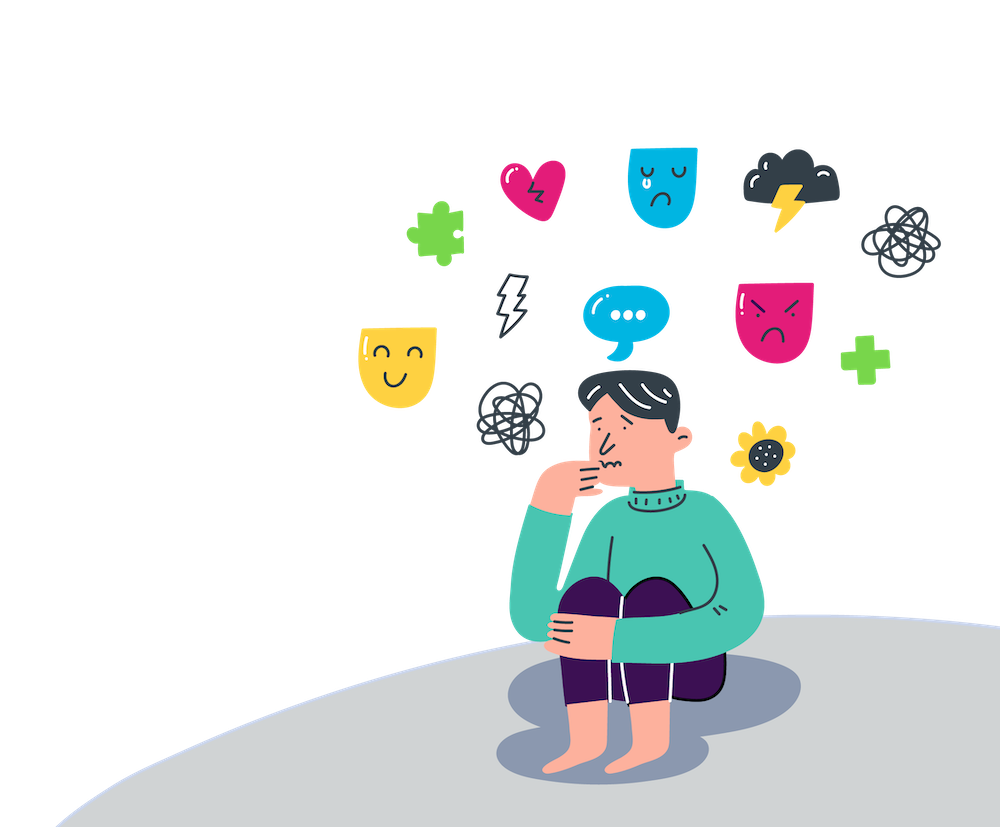Benefits of Choosing Effective Inpatient Mental Health Treatment
Wiki Article
Comprehensive Inpatient Mental Health Services for Effective Treatment
Inpatient mental health and wellness services stand for an essential component of the health care system, giving a intensive and organized setting for people experiencing serious psychological distress. These services use a multidisciplinary method, incorporating various evidence-based therapies to resolve the complex requirements of individuals. The effectiveness of such extensive treatment expands past prompt stabilization; it also encompasses the shift to outpatient support, an important stage often overlooked - inpatient mental health services. Checking out the nuances of this continuum exposes considerable ramifications for both private healing and broader mental health outcomes. What elements truly influence this shift, and exactly how can we enhance its efficiency?Understanding Inpatient Mental Health Providers
Inpatient mental health and wellness services give critical support for individuals experiencing severe emotional distress that can not be taken care of successfully in an outpatient setting. These services are designed to use an intensive level of care in an organized atmosphere, often within a medical facility or specialized facility. Clients confessed to inpatient programs usually show intense symptoms, such as suicidal ideation, extreme depression, or psychosis, demanding day-and-night monitoring and intervention.The admission process typically entails an extensive analysis by mental wellness professionals, that evaluate the individual's mindset, history, and instant demands. Once confessed, people take part in a selection of therapeutic techniques customized to their specific demands, consisting of drug management, private treatment, and group sessions. This holistic technique intends to stabilize the client's problem, advertise safety and security, and foster coping skills.
Inpatient mental health and wellness solutions not just address immediate health and wellness worries yet also serve as a bridge to continuous treatment. By supplying a regulated environment, these services promote the growth of treatment plans that can be continued in outpatient settings, thus making sure a continuum of treatment and boosting lasting end results for people with complex mental health needs.
Key Components of Effective Treatment
Effective treatment in inpatient mental health services comprises several key components that foster recovery and stabilization. A detailed evaluation is vital to determine the individual's specific demands and obstacles. This evaluation notifies the development of a customized therapy strategy, which works as a roadmap for intervention.Another critical part is the multidisciplinary group technique. Partnership among psychoanalysts, psycho therapists, registered nurses, and social workers guarantees that various perspectives add to the person's treatment, improving the effectiveness of therapy. Evidence-based restorative modalities, such as cognitive-behavioral treatment (CBT) and dialectical habits therapy (DBT), are additionally important, giving structured techniques that resolve maladaptive thought patterns and behavioral problems.

Last but not least, a concentrate on aftercare planning is critical to make sure a seamless change to outpatient services, minimizing the danger of relapse and advertising long-term health. These collective parts produce an effective therapy framework within inpatient psychological health solutions.
Benefits of Comprehensive Care

Comprehensive care in inpatient psychological wellness services provides many advantages that significantly improve individual end results. Among the primary advantages is the alternative technique to therapy, addressing not only the psychological signs however additionally the physical, social, and psychological demands of patients. This extensive evaluation permits customized treatments that advertise total well-being.
Another benefit is the integration of multidisciplinary teams, which fosters collaboration among healthcare professionals. This collaborative environment guarantees that clients get collaborated care, decreasing the risk of fragmented treatment and enhancing interaction amongst caretakers. In addition, thorough treatment assists in continuity of services, permitting smooth changes from inpatient to outpatient setups, which is important for long-lasting healing.

Last but not least, the organized atmosphere of detailed inpatient treatment supplies a risk-free space for patients to participate in healing tasks, assisting them establish dealing strategies and durability. Collectively, these advantages contribute to much more effective treatment and improved lifestyle for individuals experiencing psychological health and wellness dilemmas.
Evidence-Based Restorative Approaches
In the world of psychological health therapy, evidence-based healing methods play an important duty in making certain that individuals get effective and clinically supported interventions. These approaches integrate the very best offered study with medical expertise and client worths, promoting a tailored treatment experience that addresses individual demands.Cognitive Behavioral Therapy (CBT) is one of one of the most extensively identified evidence-based methods, concentrating on identifying and transforming adverse idea patterns and behaviors. This structured method has actually demonstrated efficiency in treating conditions such as ptsd, anxiety, and anxiousness. Similarly, Dialectical Behavior Modification (DBT) is especially reliable for people with borderline individuality problem, emphasizing the development of emotional regulation and Inpatient Mental Health Program interpersonal effectiveness skills.
In addition, medicine administration is commonly an indispensable part of evidence-based therapy, as psychotropic medicines can minimize signs and improve overall performance. Joint treatment designs, which involve multidisciplinary teams, better boost the effectiveness of inpatient services by ensuring comprehensive analyses and continual tracking.
Ultimately, the integration of evidence-based healing techniques not only advertises favorable medical outcomes yet likewise empowers individuals, promoting a sense of company and resilience in their psychological health and wellness journeys.
Transitioning to Outpatient Assistance
The transition from inpatient psychological health and wellness services to outpatient assistance marks an essential stage in a patient's recuperation journey. This duration needs mindful planning and coordination to make certain continuity of treatment and to reduce the threats of relapse or situation. Effective discharge preparation ought to start early in the inpatient stay, including a multidisciplinary team that includes psychoanalysts, psychologists, registered nurses, and social workers.Crucial element of an effective change include the growth of a comprehensive aftercare strategy customized to the individual's certain needs. This plan needs to describe follow-up consultations, medication administration, and healing treatments, as well as determine community resources and support system that can facilitate continuous recuperation.
Furthermore, individual and family members education is vital during this stage. Recognizing the signs of possible setbacks and the relevance of adhering to treatment can encourage people and their support systems.
Routine follow-up and review of the outpatient plan are vital to resolve evolving difficulties. By promoting a joint relationship between inpatient and outpatient companies, the probability of sustained recuperation increases, ultimately improving the person's quality of life and reducing the risk of readmission.

Conclusion
In recap, comprehensive inpatient mental health services offer an important framework for dealing with serious psychological distress through a multidisciplinary method. Ultimately, such extensive care is vital for long-term psychological wellness and health.The admission procedure normally includes an extensive assessment by mental wellness specialists, that assess the individual's mental state, background, and instant requirements.Effective therapy in inpatient psychological health and wellness services comprises numerous vital parts that cultivate healing and stabilization.Comprehensive treatment in inpatient psychological health and wellness services offers countless advantages that substantially improve patient end results.The shift from inpatient mental wellness solutions to outpatient support notes an important phase in a patient's recovery trip.In summary, comprehensive inpatient psychological health solutions use a vital framework for resolving serious psychological distress via a multidisciplinary method.
Report this wiki page